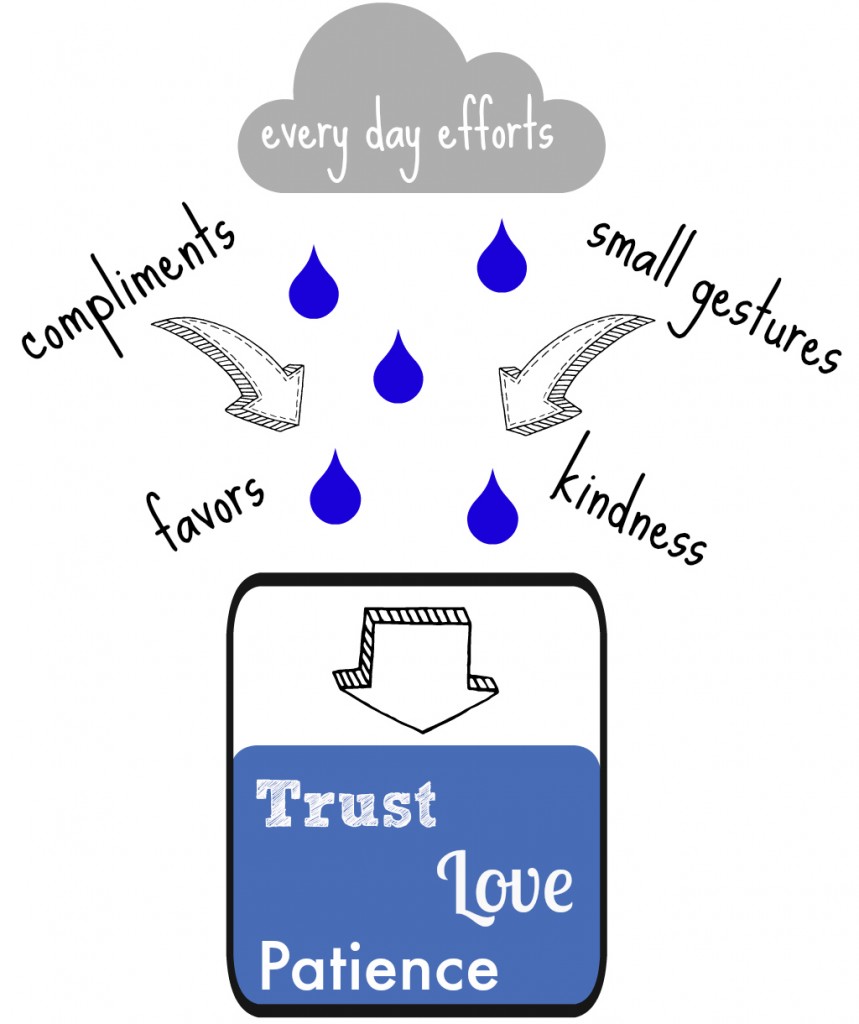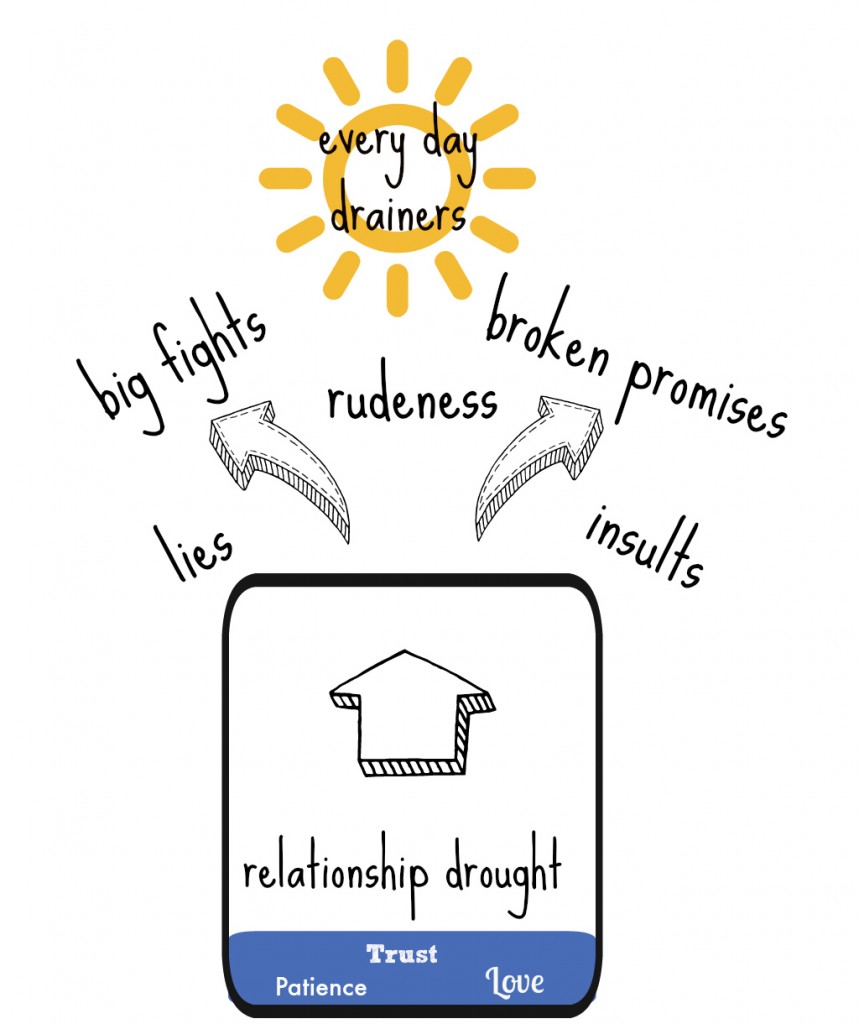Everyone does it. No couple is immune. Some call it tit for tat. Others call it keeping points. It’s that thing you do when you turn to your partner and say, “Why do I always end up doing the dishes? It seems like you never help out in the kitchen.”
Then your partner defensively replies, “I just did the dishes yesterday. You never notice when I help. And besides, when is the last time you helped with the yard work?”
And it goes from there.
The arguments can be about household chores, financial contributions, parenting tasks or even initiating sex.
These arguments feel like a volleyball game in which each person is volleying complaints back and forth over the net. It can become quite competitive. Who is doing the most around the house? Who is doing the most for the family? Who is doing the most for each other?
What couples tend to forget is that they are actually on the same team. If you ask two parents what their goals are for the family, they will almost always say the same things: Health, happiness, and a well cared for home.
I have good news for you! There are ways to minimize these division of labor battles that will in turn, make you feel closer than ever to your partner.

1. Ask yourself if you are tired or grumpy. If you answer yes, consider saving your feedback for a moment when you are rested and fed. You’ll be able to approach the subject in a less confrontational manner when you are feeling calm and can “soft start” the conversation.
2. Consider whether this task is crucial to the family and the relationship OR whether it is a personal preference for you. If it is simply a personal preference, explore the idea that you might have to take on the bulk of the job yourself. Or hire someone to help you! (Example: I like a clean, uncluttered house. Am I great at keeping it this way? Not really. My husband isn’t either but honestly, clutter doesn’t bother him. I’ve learned that lecturing him about clearing clutter is useless and only gets both of us frustrated. Instead, I try to budget time to do my own clutter cleaning and every once in awhile I have a cleaning service come in to do the deeper cleaning.)
3. Propose making a schedule or an “adult chore chart.” Most us tend to assume that our partner will handle household chores exactly the way we do. But this is a false assumption. We all come from different families and backgrounds. Just because you empty the dishwasher as soon as it has finished its cycle, doesn’t mean that your partner even notices that the dishes are done. Work together to make an agreement on what tasks need to be done when, and who is going to do them. And remember that each of your “chore lists” might not look identical. One of you might hate mopping and the other one might dislike cooking. Try to create lists that play into both of you strengths and preferences.

1. Before getting defensive, ask yourself if your partner has a valid complaint. Is it true that they have been doing most of the chores around the house? Perhaps your partner has been handling the majority of parenting tasks? Resist the urge to start tallying points and firing complaints back at them. If you can, remain calm and ask your partner how you can make things feel more equitable. You might be surprised at the answer.
2. Consider your partner’s love language. If they feel most loved when you perform “acts of service”, then chipping in with chores and yard work is going to be important in your relationship. If their love language is “physical touch”, then making it a priority to initiate cuddling or sex will be essential. When you hear your partner’s complaint, try to see how it fits into their love language. Then, try to be ahead of the game by anticipating the things that make them feel loved and initiating before being asked.
3. If you don’t want to help out more with what your partner is complaining about (or you simply can’t, due to time constraints or another issue) begin gentle negotiations. I’ll give another personal example: I used to love working in the yard. These days, I simply don’t have time or energy for it. Occasionally, my husband points out that I do not set foot outside on yard workdays. He has a point. When these conversations come up, I initially agree with him. Then I try to 1) suggest small ways that I can help (like doing a little weeding), 2) gently remind him of all of the household tasks I am handling (like laundry and housecleaning) and 3) offer to help find money in our budget to pay a yard service. Since my husband actually enjoys doing yard work, he always declines this offer, and we go about our merry way.

I said it before and I’ll say it again: you are both on the same team. It is not a competition and things will never be completely even. One partner (and this might switch back and forth) will always bring in more income. One partner will always do a little more around the house. One partner might initiate sex more frequently. Accept that you are not clones of each other and then try to boost each other up instead of tearing each other down. You will feel closer and more supported as a result!
Here’s to Sanity and Chore Charts,
Kirsten












































